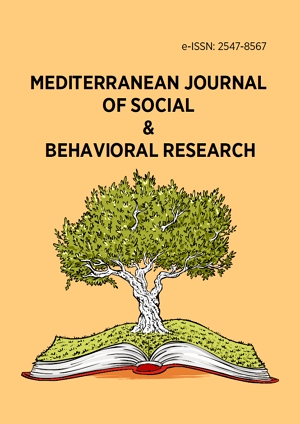Abstract
Language is one of the most important tools in people’s lives. It is the ability of individuals to communicate with people who know their own language in their social lives and it is shaped with people around them when they enter a society while another language is spoken. Language is also important to interact with them, to empathize and to understand / be understood and act together depending upon mutual understanding of each other and using a common language. Mother tongue is on the other hand defined as the first language acquired by individuals in their family and the society in which they grew up. The mother tongue can be acquired, and the foreign language can said to be learned. The mother tongue of Turkish societies is Turkish;also the first language to be accepted as an official language for Turkish Republic as well. Turkish, on the other hand, is a language with a deep-rooted culture dating back to ancient times. The functions of language or mother tongue are also to be able to realize effective communication in life. Effective communication can be achieved by understanding the feelings and thoughts of the other person, that is, by listening to them empathetically. When another language is to be learned, one of the most important criteria for the individual to acquire empathic listening skill is the cultural structure of that language. Learning only the grammar of a foreign language and four basic language skills alone is not enough for an empathic communication; The empathic dimension of listening, which is one of these four basic language skills, should also be culturally understood. Because the importance of empathic communication skill cannot be denied in using and understanding languages correctly. Teaching Turkish to foreigners has been increasing especially in recent years. Therefore, the relationship between mother tongue-foreign language-empathic communication skills, with students learning foreign languages are considerably important. In this regard, foreign individuals who learn Turkish presented in the article are at the same time get to know not only Turkish but also the Turkish culture. This study is a qualitative research and it tries to examine the benefit provided by foreigners who learn Turkish to use this language in the most effective way. Learning and using Turkish effectively is founded out to be related with getting to know the culture and gaining empathic listening skills.
License
This is an open access article distributed under the Creative Commons Attribution License which permits unrestricted use, distribution, and reproduction in any medium, provided the original work is properly cited.
Article Type: Research Article
MEDITERR J SOC BEH RES, Volume 5, Issue 2, June 2021, 35-40
https://doi.org/10.30935/mjosbr/10917
Publication date: 16 May 2021
Article Views: 2701
Article Downloads: 1787
Open Access References How to cite this article
 Full Text (PDF)
Full Text (PDF)